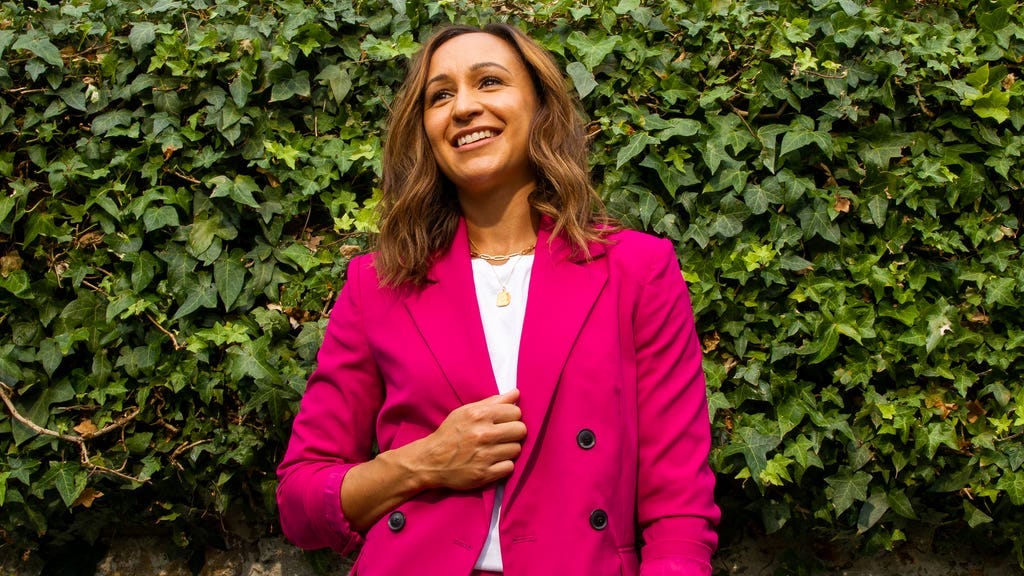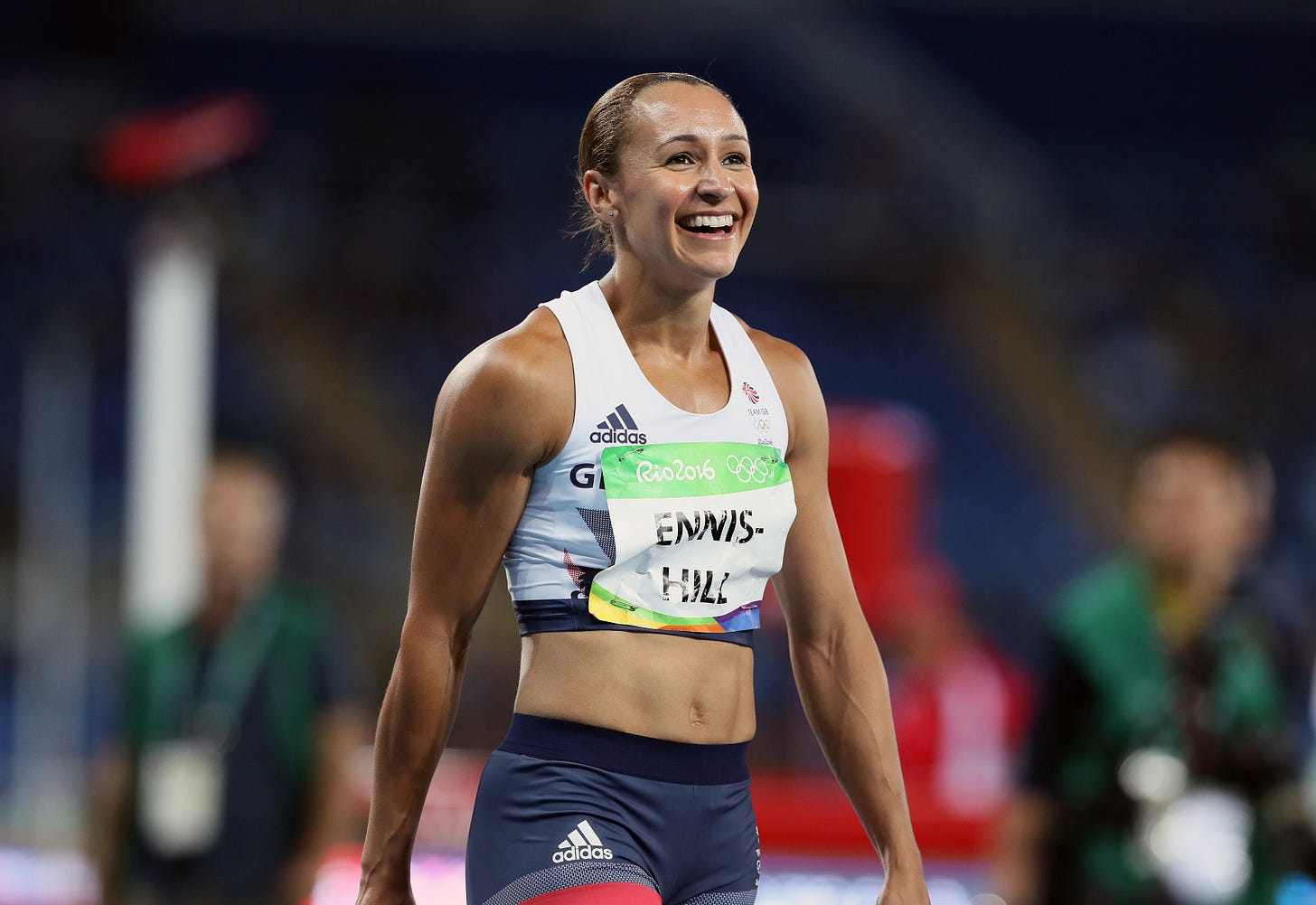Jessica Ennis-Hill: Women shouldn’t feel at the mercy of their hormones
The Olympic athlete-turned-businesswoman talks about shifting focus onto perimenopause.

Jessica Ennis-Hill hasn’t quite reached midlife – but she has been giving some thought to the life phases yet to come.
“I want to take more opportunities and enjoy them during my later life. My early life was quite intense, especially as an athlete,” says the former heptathlon star, whose accolades on the track and field included three world champion titles and Olympic gold at the London 2012 Games.
“That whole period was very structured and restrictive to a certain extent, and very intense. I feel like I’ve almost got a second life – in a weird way, a new career, different opportunities. This period and that period before definitely feel very different to me.”
It’s nearly seven years since she retired from athletics, announcing shortly after scooping her second Olympic heptathlon medal at Rio 2016 that she wanted to leave “on a high”.
She and husband Andy already had their son Reggie, then two, and daughter Olivia came along in 2017. In 2019 she launched Jennis – a fitness and ‘hormone intelligence’ app offering workouts, plus expert-led lifestyle and nutrition recommendations tailored to women’s individual needs.
Pregnancy and postnatal fitness were a key focus at first, and Jennis quickly evolved to centre on menstrual cycle mapping. The impact of female hormonal health and fluctuations was an area that had been seriously lacking in sports science research and acknowledgment for professional sportswomen (Ennis-Hill became one of a number of high profile athletes to start speaking out on the topic) – the goal with Jennis was to channel this growing knowledge towards all women, so they could feel “more in control and empowered”.
Now, the app has evolved further with the launch of a perimenopause programme.
“One of the main reasons we wanted to move into this next life phase was because a lot of the women on the platform have said, ‘I’m loving the information and the data I can log, but I’m heading into this next phase, where my cycle feels very different, I’m having different symptoms – do you have a product that’s going to cater for us?’,” explains Ennis-Hill, who says this was a “natural progression” for Jennis.
Menopause awareness has increased in a general sense in recent years. “Obviously, everything Davina McCall has been talking about with the menopause on TV and her channels has created so much amazing noise around it,” Ennis-Hill notes.
Yet a lot of people remained in the dark about perimenopause – the stage leading up to menopause which can typically last from four to eight years. “I definitely didn’t know for a good few years that was the pre-phase to the menopause, and the symptoms that you would experience and how it would affect your body,” admits Ennis-Hill.
These symptoms can be much the same as with menopause: mood changes, disrupted sleep, hot flushes, difficulty concentrating, vaginal dryness, libido changes, anxiety. Hormonal changes can have physiological effects too, such as metabolic changes, changes in how the body stores fat, reduced muscle mass and bone density.
“Your energy levels, your mood, all these things can have a massive impact on your day-to-day life, your work life and relationships,” says Ennis-Hill. “There should be more understanding around it, so we can help more women navigate themselves through it and not feel that either they don’t know what’s happening to their body, or they need to be put on antidepressants, as that is something that comes up a lot.” (While antidepressants are of course sometimes an appropriate prescription, some experts have warned that in many cases women are being given the drugs when what’s really needed is more peri/menopause support and HRT.)
In terms of the Jennis model, it’s about taking a holistic approach, with lifestyle interventions and suggestions taking in movement and exercise, nutrition, stress and sleep (alongside women exploring HRT support with their own GPs should they choose to).
“Movement is a big part of it,” says Ennis-Hill – this might mean a “breathwork session to help with anxiety”, “restorative yoga” or strength sessions timed to maximise muscle growth at optimal times in someone’s cycle.
It’s building on a “sense of empowerment” that’s driven the business from day one. “To not just feel like you’re floating through things and at the mercy of your hormones,” says Ennis-Hill.
And it means she’s much more informed about her own hormonal changes too. “I feel that I’m so prepared now going into these next phases – whenever they happen! What I’ve learned over the past few years has been hugely beneficial.”
Perimenopause and menopause and all the changes middle age can bring can sound daunting, but Ennis-Hill is leaning into the positives as well. She can relate to the notion of confidence growing with age.
“I think that’s definitely true. When you’re in your 20s or early 30s, you’re still trying to please other people, and trying to be a version of yourself that you think other people want. As you get older, you think, well I am comfortable in who I am, and I’m going to be a bit more confident in what I wear or what I do, because you are kind of settled,” Ennis-Hill reflects.
“And I do feel very settled. I feel like I’ve got a good balance in my life.”




